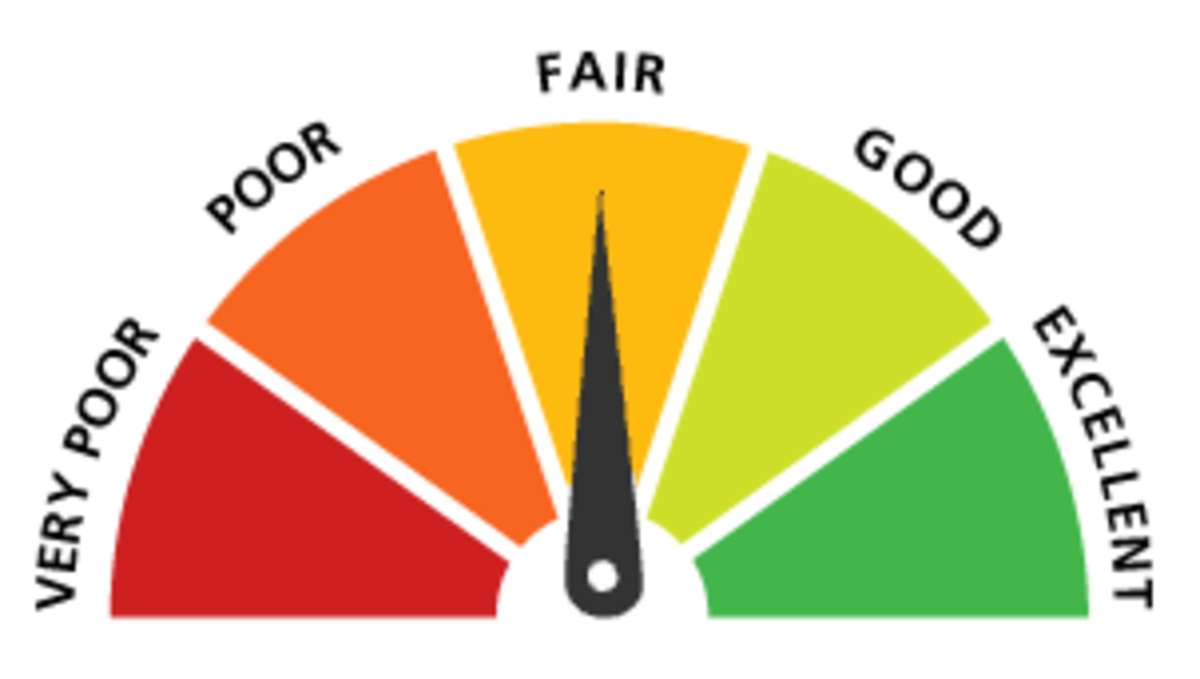How Important is Your Credit Score?
Introduction
Building credit is mostly a matter of paying bills on time and not going deep into debt. Many of the lenders that promote debt do so because they make money from it, in the form of interest and fees. Don't spend more money that you don't have in the mistaken belief that it is necessary for your financial future, much less in other areas of your life.

Getting New Credit
One of the times your credit score is critical is when you are applying for new credit. Your credit score will determine the credit card rates offered when you apply for a credit card, the interest rate you are charged on a new mortgage and the car loan rates for which you are eligible. Your credit score can even affect the interest rate on your current credit cards and other variable rate debt, with the interest rates going up if your credit score goes down.
Credit Scores and Insurance
Many insurers are using your credit score to determine your risk as a client. There is a rough correlation between low credit scores and increased insurance claims, though this correlation is far weaker than someone's prior claims history or driving record.
If you were turned down as a customer for insurance due to your credit score, look for an insurance broker who can find insurers who don't care about your credit score or will perform manual underwriting. Manual underwriting is the process of someone looking at your claims history, personal finances and general records and deciding to offer you an insurance policy.
Many companies switched to using credit scores as a filtering mechanism for potential clients because it is fast and easy, though it is not necessarily fair. Some employers are using new forms of vetting such as looking at bill payment history instead of one's credit score, because Hispanics and blacks have lower average credit scores than Caucasians.
Credit and Employment
Credit and employment are related, but you do not have to have a perfect credit score to get most jobs. Your credit score is only considered relevant to a job if the position involves handling significant amounts of cash, involves highly sensitive information that could be sold for money or a fiduciary position in which you would be responsible for financial records.
For example, applicants seeking to be bank teller or assistant restaurant manager who handles cash at the end of the shift can have their credit scores checked under all state laws. The military and defense contractors can also run your credit report. However, many states limit the ability of businesses to check your credit score for positions that do not involve money, fiduciary trust or highly sensitive information.
A credit check by employers is not allowed without your permission in writing. If you are denied the job due to your credit score, they must state such in writing and tell you why you were refused.

Promotions, Security Clearance Updates and Job Transfers
Businesses can run your credit report and check your credit score if you are seeking a position that is sensitive. Businesses can also run your credit score or pull your whole credit report as part of the security clearance update process.
For those with a Top Secret clearance, this happens every five years, whereas it happens every ten years for those with a Secret clearance. These credit checks are part of the background check process, and you must pass this background check to continue in your current position. You must have a background check and credit report run if you apply for a higher security clearance.
Businesses can run your credit report if you are applying for a higher position, such as a stock clerk applying for a cashiering job or a telemarketer for a bank applying for a loan officer's position. Transferring to a more secure site can also trigger a security background check. For example, if you work for a defense contractor and are moving from an office building with your employer to a job on base, the military can run your credit report as part of their reviews before they grant you access to site. Credit and employment are closely related if the job involves handling money or sensitive information.








